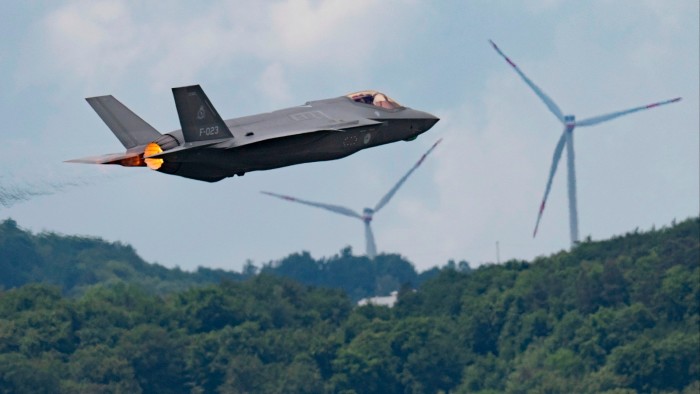Stay informed with free updates
Simply sign up to the German politics myFT Digest — delivered directly to your inbox.
The German government has approved a proposal to allow the armed forces to shoot down drones after a spate of suspicious activity near military bases, critical infrastructure and industrial sites.
Chancellor Olaf Scholz’s cabinet on Wednesday approved the plan, which must still be passed by the Bundestag, as part of an effort to scale up the country’s response to suspected Russian and Chinese espionage.
The amendment to the aviation security act would allow the military to use force to bring down unmanned aerial vehicles if there is a threat to critical facilities or a danger to human life that cannot be addressed by the police.
It comes after recent incidents including drone sightings at the US military air base Ramstein, in West Germany, at sites hosting training for Ukrainian soldiers and at facilities belonging to the German arms maker Rheinmetall. In November, a drone approached a British aircraft carrier in Hamburg.
Until now, the Bundeswehr — the German armed forces — had only been allowed to chase away drones, force them to land or fire warning shots. Police and the military have also used jamming technology.
But authorities say that they have been alarmed by an increasingly large number of drones that appear resistant to such defensive methods. They suspect that more sophisticated models, not commercially available, are being deployed by hostile state actors at a time when Nato members are facing a sharp uptick in what they view as hybrid warfare tactics from Russia and China.
Those concerns prompted interior minister Nancy Faeser and defence minister Boris Pistorius to push for a change in the law.
Faeser said on Wednesday that since Vladimir Putin’s full-scale invasion of Ukraine in 2022 “we have seen that drones are being used more and more frequently, which pose an increasing challenge for the police and their current technology”.
She said that the change “increases the protection of our critical infrastructure. And it shows that we will not be intimidated and are resolutely confronting the current threats.”
The amendment still needs approval from the Bundestag, where Scholz no longer has a majority after the collapse of his three-way coalition in November. It remains unclear if the change will meet with the approval of lawmakers.
Günter Krings, the legal policy spokesman for the opposition Christian Democrats, criticised the proposal this week as “largely symbolic”, saying that a more fundamental change in the law was required to empower the Bundeswehr to act quickly and decisively when necessary.
Ulrike Franke, an expert on drones at the European Council on Foreign Relations, a think-tank, said that the change was welcome because “the law was behind the reality”.
But she said that shooting down an unmanned aerial vehicle should always be a last resort.
“What you want to do is use electronic means to intercept the drone, analyse it and find the operator.”
Read the full article here

